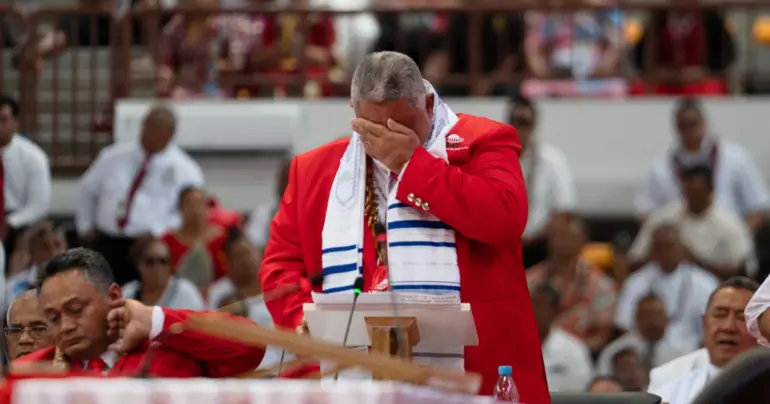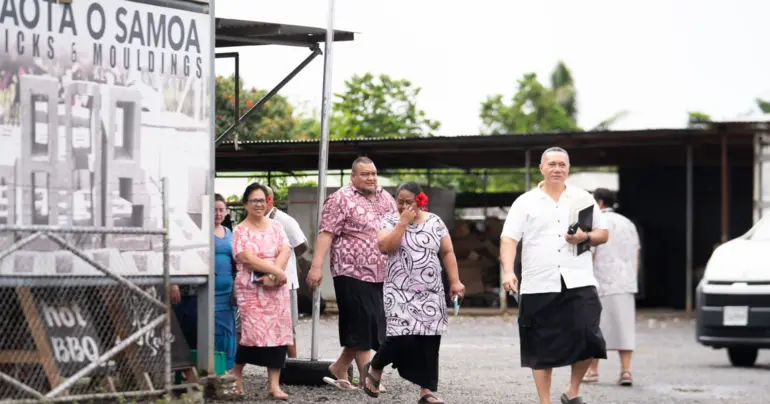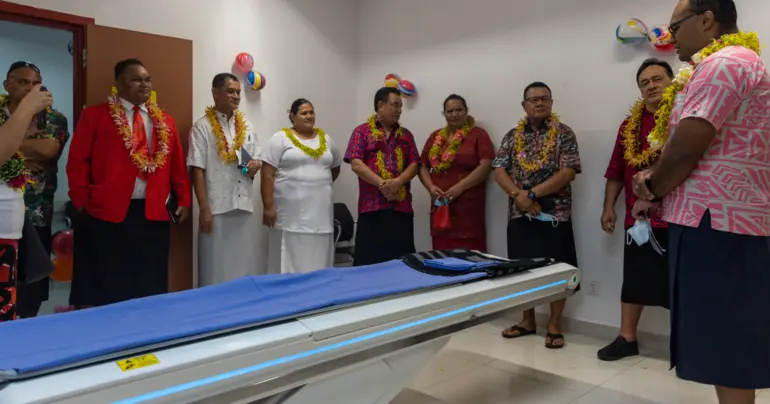Commision's overhaul vital to democracy
Providing an update to her reform agenda on Wednesday, Prime Minister Fiame Naomi Mataafa gave the impression of a woman who was serious about the business of Government.
We have previously noted in these pages the very apparent distinctions between Fiame’s political style to that of her predecessor. Where the former Prime Minister, Tuilaepa Dr. Sa'ilele Malielegaoi, preferred to paint in broad policy brush strokes with rhetoric to match, Fiame’s approach to governing is much less exciting and more fine-grained and about the creation of systems with integrity,
That side of the Prime Minister was on full display yesterday as she told the media she planned to address inconsistencies in the nation's current machinery of Government.
Some 25 different commercial entities fall under the jurisdiction - and the budgeting - of the Ministry for Public Enterprises, but many of them, such as the Electric Power Corporation (E.P.C.) really are responsible to the Ministry of Works, which has charge of its day-to-day operations.
But among these policies to address accounting and budgeting problems was a reform that goes to the moral heart of our democracy: overhauling the Office of the Electoral Commissioner (O.E.C.) to guarantee its independence.
The O.E.C. is tasked with overseeing the free and fair exercise of democracy in Samoa. But this April it exceeded its administrative role when it in fact became a player potentially changing their outcome.
When the body responsible for overseeing a neutral election can be seen to influence it then serious problems for democracy follow.
The role of the O.E.C. in this year’s seemingly endless political power struggle is well known but it bears summarising here to place Fiame’s reforms in their rightful context.
As the behind-the-scenes negotiations were ongoing to form a Government in Samoa, the O.E.C. dropped a late-night bombshell announcement that defined the course of political arguments about the country’s Government for months to follow.
The Commissioner obtained a warrant from the Head of State tha promoted to Parliament a sixth woman candidate, the incumbent Human Rights Protection Party’s (H.R.P.P.) Aliimalemanu Alofa Tuuau.
The decision was one said to be founded in constitutional law and a requirement that 10 per cent of elected M.P.s. are women.
But its political consequences were more far-reaching than that, something the Commissioner could not have been blind to. The inclusion of an extra woman would have changed the balance of power in Parliament drastically, eroding the Faatuatua ile Atua Samoa ua Tasi (F.A.S.T.) party’s slender majority and claim to Government.
Legal critics such as former Attorney-General Taulapapa Brenda Heather-Latu analogised the move to an administrative coup and noted that the late night Facebook announcement of the change “was unworthy of the importance, magnitude and impact of the decision- all suggesting a rushed, ill thought out and underprepared''.
Indeed a decision that ended up plunging Samoa into a “constitutional crisis” was proclaimed at 9.30 pm and via Facebook.
In the end, of course, the Electoral Commissioner’s interpretation of the Supreme Law was found to be right - in a sense. A sixth woman would need to be appointed to Parliament but not necessarily Aliimalemanu. The process for ensuring six women legislators were in the House was one that could only be determined once an array of post-election legal challenges and by-elections were concluded, giving legislators certainty about the number of women who would command a seat on the floor.
Whether such an announcement was, as critics said, driven by politics and announced with the intention of spoiling an announcement that F.A.S.T. had secured the support of a key independent member, then-kingmaker Tuala Iosefo Ponifasio, is the subject of much conjecture.
But it should not be. The institution that oversees our democratic process should be beyond reproach; it should be exposed to neither allegations of actual bias or perceived bias; its independence should be totally guaranteed.
Announcements by Fiame that she would seek to eliminate all possible sources of accusations of bias against the O.E.C. in favour of the Government of the day, including limiting its ability to have its budget cut are to be applauded,
The post-election review process, Fiame, further noted, has typically been undertaken by former M.P.s close to the current ruling party. These Parliamentarians are undoubtedly experienced but these affiliation mean they simply cannot be viewed as non-partisan.
It is essential that all aspects of running elections in Samoa all the way from setting up polluting booths to making amendments to electoral law, be free from any party political affiliation.
The Office of the Electoral Commissioner should be known for its diligent, low profile work -to the point of dullness - not as the source of stunning late night revelations.










